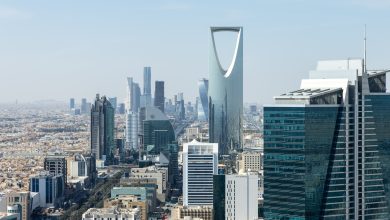The UAE has made innovation a way of life and an administrative approach to modernising government work and strengthening sustainable economic development based on clear plans and strategies, enabling the country to be ranked first in the Arab region and 34th globally in the Global Innovation Index (GII) 2020.
February 1, Monday, marks “Innovation Month 2021”, which has become a national occasion for consolidating the country’s position as a global hub of innovation and capacity building, and a catalyst for public and private sectors and individuals to adopt innovative practices.
The outcomes achieved by the UAE are due to a clear policy related to science, technology and innovation, comprising 100 national initiatives worth over AED300 billion until 2021, in addition to a series of new national legislative, investment, technological, educational and financial policies aimed at diversifying the national economy.
The UAE has continually strengthened its sustainable development capacities supported by innovation and created an ideal environment for new generations to supply the labour market with innovative minds.
RELATED STORY: UAE ranks first globally in several indexes related to addressing COVID-19 pandemic
The country’s innovation policy invests in Emirati citizens, advances their knowledge in science and technology, and supports many sectors, including space research, specialist aviation industries, global pharmaceuticals, solar energy research, peaceful nuclear power research and artificial intelligence (AI) programmes.
The year 2014 was a milestone in the country’s journey of innovation. In October 2014, His Highness Sheikh Mohammed bin Rashid Al Maktoum, Vice President, Prime Minister and Ruler of Dubai, launched the National Innovation Strategy, which aims to make the UAE among the most innovative countries in the world by 2021.
The strategy included 30 national initiatives implemented over three years, including adopting new legislation, supporting innovation incubators, building specialist national capacities, offering a series of incentives to the private sector, establishing global research partnerships, and modernising government work to be more innovative in seven key sectors, most notably renewable energy, transport, health, education, technology, water and space.
In 2015, the UAE Cabinet allocated 2015 as the Year of Innovation and issued directives to all federal authorities to reinforce their coordination and revise public government policies, to create an environment that encourages innovation, with the aim of making the UAE a global leader in this area.
In August 2015, His Highness Sheikh Mohammed bin Rashid declared that a week, from 22nd to 28th November, will be named “UAE Innovation Week.”
Following the success of UAE Innovation Week in 2015 and 2016, it was announced that an entire month will be named Innovation Month in February 2018, becoming a national occasion for celebrating innovation in the country.
READ ON: World Economic Forum ranks UAE among most resilient countries against impact of COVID-19
In recent years, the UAE has accomplished a series of significant achievements in the field of innovation covering all areas of life, most notably the development of educational systems, boosting computer use and smart devices in schools, inaugurating new electronic higher education establishments around the country, and establishing several technological institutes and research establishments aimed at promoting innovation, such as Masdar City in Abu Dhabi, the Dubai Science Park Lab Complex, the Mohammed bin Rashid Academy of Scientists and the Mohamed bin Zayed Artificial Intelligence University.
Since the start of the coronavirus (COVID-19) crisis, innovation has become the key weapon used by the UAE to address emerging challenges and turn them into opportunities, ensuring business continuity in all vital sectors, upon the highest standards of health and public safety.
The UAE has utilised scientific innovation to consolidate its efforts to counter the pandemic, including by analysing the genome sequence of the virus, launching the largest lab in the world outside China to conduct coronavirus tests, and established a dozen drive-through testing centres.




